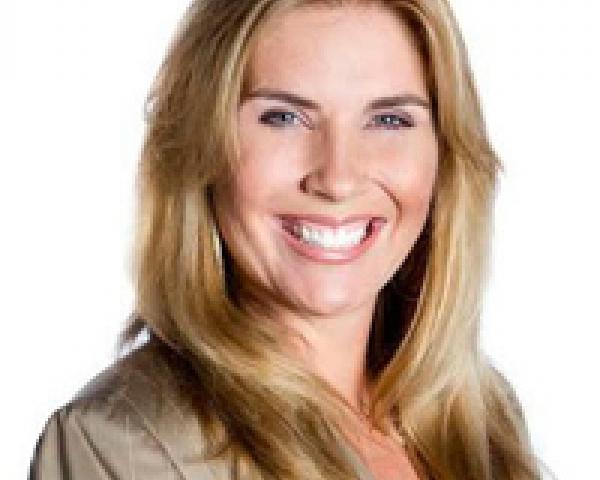I consider myself extremely lucky. I have a front row seat to a monumental shift in consumer behavior, which translates into important opportunities, and risks, for traditional insurance providers.
I don't plan on sitting back and watching the show from a distance, I'm getting involved. Although for the record, I am not a good actor. Maybe I'll take a gig with the stage crew.
The shift I am referring to is the so-called gig economy. Some use synonyms like the sharing economy, access economy or collaborative consumption. The list goes on. All of these terms boil down to one important reality: the ability to turn otherwise unproductive assets into income-producing ones through micro jobs, or "gigs."
These assets include cars, homes, consumer items, hobbies and spare time.
As a vote of confidence to this new trend, Merriam-Webster added the term "sharing economy":
Sharing Economy (Noun): economic activity that involves individuals buying or selling usually temporary access to goods or services, especially as arranged through an online company or organization.
According to PricewaterhouseCoopers (PWC), the estimated value of the sharing economy sector by 2025 will be $335 billion. For 2013, that same number was $15 billion. In just more than 10 years, then, PWC predicts that the value of the sharing economy will skyrocket by more than $300 billion.
See also: How to Insure the Sharing Economy
A
recent TIME Magazine study reports that 45 million American adults participate in the sharing economy. This is 1 in 5 American adults! Let that number sink in for a moment.
You good? Okay, let's continue.
The explosive growth in the sharing economy is occurring amid a backdrop of larger social, economic and demographic trends. These include:
- Increasing urbanization (people have less space)
- Aging demographics (older people have less money and need more services)
- A shift in consumer behavior from ownership to access
In an excellent 2015 Insurance Thought Leadership article, Neil Howe concluded that, "although some dismiss the gig economy as a fad, a hard look at the numbers shows it's both large and growing, with profound implications."
So, business is booming, consumers are participating and socio-demographic trends support the growing sharing economy sector. What does this mean for the insurance industry as a whole? A lot.
Let me explain.
Today, I want to plant a seed. Well, as a matter of fact the seed has already been planted, a number of times by a number of entrepreneurs. What we are doing today is watering those seeds. The insurance industry is thirsty for disruption, and this is a good thing.
Insurance Industry, Meet Sharing Economy: An Introduction
In January, I wrote about my company, WeGoLook, and its applicability to traditional insurance operations. Specifically, we discussed the challenges the industry faces because its slow processing of claims can't continue in an age where customers demand immediate access to information, as well as the opportunities that the demands create for innovators like WeGoLook. Thanks, millennials!
Today, I want to delve deeper into the disruption of this new gig economy, or sharing economy, in an effort to unpack some of the opportunities that are staring directly at us.
The insurance industry is currently at a technological and innovative crossroads. To take the correct path, strong leadership is required. Lucky for us, you don't have to be an industry expert to be an industry leader.
The founders of Airbnb quickly began competing with (and surpassing!) large hotel chains, with zero knowledge about the accommodation industry -- except being proficient at inflating air mattresses. Similarly, Uber quickly disrupted the taxi and transportation verticals with no industry experience. We live in an age where we either adapt or risk getting left behind as technology marches on. So, it's imperative that we as industry experts fully understand how to incorporate new business models in our value chain.
See also: 'Gig Economy' Comes to Claim Handling
That's what I hope to achieve in my business; to help lead us into a new era where innovation is understood, adopted and refined. I believe this is your goal, as well; after all, you are a subscriber to Insurance Thought Leadership.
So how can the new gig economy plug into traditional carrier business operations?
The Gig Economy: WeGoLook and Flexible Workers
Slowly, we are realizing that the insurance industry as a whole is one of financial arbitrage, rather than logistics. Why would a large insurance firm employ thousands of boots on the ground nationwide when gig economy companies such as mine have access to a flexible and ready workforce available at the tap of a smartphone? B2B crowdworkers can quickly gather information for underwriting and claims processing. These workers also have the ability to retrieve police reports, notarize documents, pick up salvage items, deliver documents and much more.
Remember, the sharing economy is about leveraging underutilized assets, including spare time, to fulfill both consumer and business requirements.
Crowdworkers offer four main benefits to traditional carriers:
1. Faster Flow of Information
As we all know, processing claims requires time and patience to gather relevant information, photographs and a myriad of other documentation. Getting the right information and accurate documentation can take even longer.
Yet, commercial policyholders need to know how quickly they will be receiving funds from a claim so they may, in turn, inform their customers. Similarly, individual policyholders need a claim settled without delay so they can return to normal life. This is just good business practice.
Digital and mobile platforms provide a faster flow of information. They also allow for the easier integration of crowdworkers while making sure that the right information flows into the right hands at the right time. For example, the WeGoLook mobile application directs our Lookers, those gig workers we were talking about earlier, to capture on-site data in the form of photos, video, measurements, answers to specific questions and more.
2. Ordering Efficiencies for Claim Handlers
While carriers worry about the massive rework that needs to be done to update back-end systems for the demands of today's customers, a system like ours can be used as a front end that obviates the need for much of that work. For instance, once an order has been uploaded, WeGoLook will contact the policyholder to schedule an on-site inspection appointment, removing the task from the carrier's workflow. The claim handler at the carrier can easily make special language or expertise requests, such as the requirement for a Looker who is also a notary, and not have to worry about logistics. WeGoLook technology allows for the claim handler to view video and photos within the report -- even when the carrier's back-end does not support video.
For good measure, because new systems are written from scratch and don't carry all the baggage of legacy systems, users of our ordering dashboard can p
lace an order for a Looker within an average of four minutes, compared with 12 minutes in traditional systems used to dispatch field assignment representatives.
See also: On-Demand Economy Is Just Starting
3. Customization and Security
Writing from scratch also lets new companies customize reports to the needs of clients, letting them view data however they like. Nothing changes, no matter the location of the policyholder or asset.
4. Cost Efficiencies
Finally, while I am the first to acknowledge that an on-demand workforce does not fully replace technical or specially certified field personnel, such as claims adjusters, a flexible workforce can be dispatched at the click of a button and can certainly augment, and in some cases, replace the need for full-time field staff.
Efficiencies emerge in the form of salary costs, fleet vehicle costs, travel expenses, labor costs and much more.
Yes, there will always be the need for an experienced field adjuster to be present under a number of circumstances. However, this is not the bulk of required work, and traditional carriers are wising up to this fact.
Conclusion, for Now
We believe that insurance should be smart and streamlined and adapt to customer needs. And these needs are changing rapidly within our disruptive environment. Insurers need to make their workforces more flexible by taking advantage of the gig economy.
The seed has been planted. The question now is, will the landscape become an innovation desert. Or, can we help foster and develop a fertile growing climate, reminiscent of the Oklahoma grain farms I grew up with.
I strongly believe it is the latter. I'm carrying a watering can and have my gardening gloves on.
Good luck, and don't forget to water regularly!







